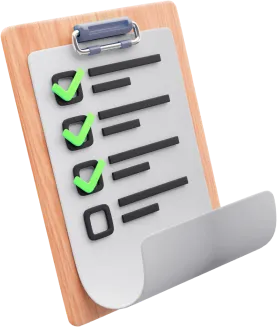Property management: a complete overview

Property management definition: Property management is the process of maintaining residential, commercial, or industrial properties, such as houses, apartments, office buildings, and retail and commercial spaces. In this article, we'll explain everything you need to know about the residential property management industry.
Property management has been around for centuries and is used to actively or passively generate income through real estate ownership.
Residential property managers are in charge of single-family homes, apartments, townhouses, multi-unit properties, and more. Homeowners pay the manager either a fee or a percentage of the rent earned from tenants. It includes various activities and procedures such as finding and screening tenants, collecting rent, maintaining the property, and enforcing rules and regulations.
To have a career in property management, you will need either a property management license or a real estate broker's license. A property management license allows those in this profession to work with real estate and carry out business-related tasks associated with the job.
The precise licensing requirements depend on the state where you reside and work.
The basics of property management
Property managers are responsible for overseeing a wide range of tasks related to the day-to-day operations, such as maintaining the physical and financial health of the property, managing tenant relationships, and ensuring compliance with legal and regulatory requirements.
Here's a glossary of important property management and rental terms and fees to know.
Regarding residential rentals, landlords can manage properties in entirely different ways. There are two types of residential rentals: short-term and traditional long-term. Short-term rental properties allow for less than one month; stays can be as short as one night or up to a week.
These rentals offer an alternative to hotels, complete with furniture and all the necessary amenities like linens, toiletries, and kitchenware you might need during your stay. In contrast, long-term rentals almost always have a minimum stay of at least one month.
It's not surprising to find traditional rentals with lease terms requiring a full-year commitment. These properties are often left unfurnished, allowing tenants to personalize the space with their furniture and decor items.
Approaches to property management
Property management can be done either actively or passively, depending on the goals and needs of the property owner. Active property management involves:
- taking an active role in managing properties by screening tenants,
- collecting rent,
- responding to maintenance issues, and
- being responsible for real-time property oversight.
In contrast, passive property management involves hiring a professional property manager to handle all aspects of these responsibilities on behalf of the owner. Learn about all the different types of residential property management here.
What activities does property management include?
Property management activities include all the day-to-day tasks necessary to keep a property running smoothly.
There are various responsibilities across legal compliance, property maintenance, and financial management.
Compliance
The property manager must ensure that the property complies with zoning regulations and fire safety standards. Compliance also includes:
- Conducting inspections
- Obtaining rental licenses
- Paying insurance premiums
- Addressing legal issues
- Meeting building code regulations
Maintenance
A property manager may oversee the following types of maintenance:
- Lawn care
- Renovations
- Snow removal
- Carpet Cleaning
- Window cleaning
- Securing the premises
- Chimney /duct cleaning
- Indoor and outdoor lighting fixes
- Appliance upgrades and installations
- Emergency repairs and replacements
Finances
A property manager is responsible for ensuring that a property performs well financially. Some financial services include:
- Listing and marketing properties
- Collecting rents
- Filing evictions
- Managing escrow accounts
Property managers may also show properties to prospective tenants. A tenant is an individual renter with the legal right to occupy a property for a specified period. The property manager negotiates and secures leases on behalf of the owner. A lease is a legal document outlining terms and conditions between the owner and tenant relationship.
Property management activities can be time-consuming, but they are essential to keeping your investment property profitable and in good condition.
Types of property management companies
You can either manage your residential property or use services like a big corporate firm, local boutique agency, or an online property management platform. Doorstead is an example of full-service property management utilizing technology and automation. Each type of management solution has its strengths and weaknesses, and the most optimal one depends on the needs and goals of the property owner.
Approaches to property management
For those looking to generate passive income through investment property, it is important to consider the property management approach used. The method of property management you choose can result in significant financial gains or potentially many frustrations and losses.
Read our in-depth breakdown of different types of property management companies and approaches. In the US alone, there are over 282,000 property management companies and 847,000 people employed by these companies, according to data from property management. They found that these businesses generate approximately $88 billion in revenue per year and account for 16% of the US GDP.
If you're looking for an affordable option that doesn't require a lot of time or energy commitment, technology-based automated property management services like Doorstead can be a great choice. Our services use algorithms and data to handle all the day-to-day tasks involved in property management, from finding and screening tenants to maintaining the property and collecting rent. Doorstead can be an excellent option for those who want to earn passive income but don't have the time or energy to commit to self-management. In addition, these types of services can often be more affordable than traditional property management companies.
Homeowners should have a clear plan for managing their property before hiring a company or individual.
For example, some homeowners prefer to handle all of the day-to-day operations themselves, while others outsource specific tasks to third parties. It's crucial to find the right balance that works for you and your property.
The role of technology in the property management industry
Over the past decade, technological advances have revolutionized the way properties are managed and operated. Property managers now use powerful software tools to automate routine processes, such as screening tenants, collecting rent payments, and monitoring maintenance projects and schedules. At the same time, new online platforms are also changing how landlords and tenants interact, with many transactions and communications now taking place seamlessly and securely online. Learn about important automation trends shaping proptech and the technology that is changing the property management industry in 2023 and beyond.
The financial benefits of property management
It's often a hefty upfront cost to invest in real estate, especially in hot real estate markets, but it typically generates consistent and reliable returns. Investing in property management can be a savvy move for landlords. By managing a property correctly, landlords can generate positive cash flow and see returns on their investments. Property managers, whether hired or taking on the role of self-management, can help maximize the financial returns on investment by optimizing property performance, minimizing expenses and downtime, and maintaining high occupancy rates. Property management represents a highly lucrative opportunity for real estate owners to generate significant investment returns.
When buying an investment property, you should take a few things into account to maximize your returns:
- Ensure that the property is in a good location.
- Make sure the property is in good condition and competitive in regards to the local market and surrounding neighborhood.
- Due diligence to find a property that is priced right.
If you can find a property that meets all of these criteria, you will likely see a good investment return. And if you hire a property manager, you can even turn it into a passive income stream.
Recent Trends and Statistics of Property Management
Their research shows that real estate creates 16% of the United States GDP, and property management salaries comprise 43.0% of industry profits. The property management industry is worth $99.449 billion annually. On average, the industry has been growing by 5% per year since 2012. Ipropertymanagement statistics show that job growth in residential property management is steadier than in commercial property management.
The rental vacancy rate has dropped significantly in the past decade and is now at its lowest since the 1980s. Between 2009 and 2020, the national rental vacancy rate decreased by 85%. The current nationwide rental vacancy rate is 5.8%. If trends from the last decade continue, the vacancy rate should drop below 4 percent by 2025. In the past ten years, rental vacancy rates for residences have significantly decreased, making property management a healthier industry overall.
Tenant screening is one of the most important aspects of generating a return on investment. According to Exact Estate's Five Property Management Industry Trends for 2022, many would-be tenants are priced out of units they're interested in because of current market conditions. Lost opportunities due to pricing pose a problem for those wanting to rent and property owners and managers who need to maintain their profit margins. Their data shows that tenant screening will be one of the top four industry trends in 2022. Property managers across the board must find ways to screen each tenant quickly, reliably, and without breaking the bank to stay ahead of the curve.
Doorstead is a property management company that can help with all aspects of property management, from finding tenants to repairing damages. We're here to take the hassle out of property management. Property owners should be involved in the direction of their property. We provide the tools and resources they need to make informed decisions, but we ultimately leave it up to them to decide how they want to run their property. Our data-driven approach leads to better outcomes for everyone involved.
If you're considering working with a property management company, learn more about Doorstead's full-service property management and our win-win approach. You'll be impressed by what we have to offer.
Did you find this article surprising or helpful? If so, please share it! And if you're looking for more helpful tips and resources on property management, visit the Doorstead blog.












.jpg)





















































































.avif)
